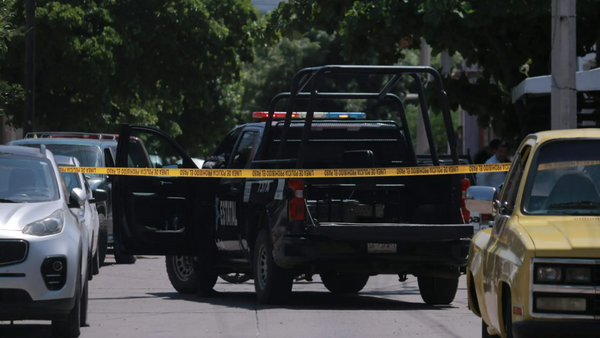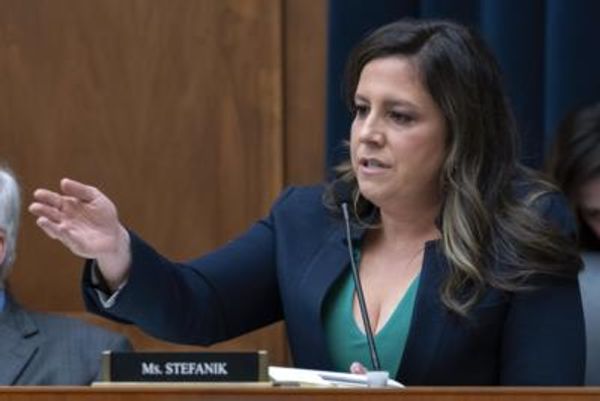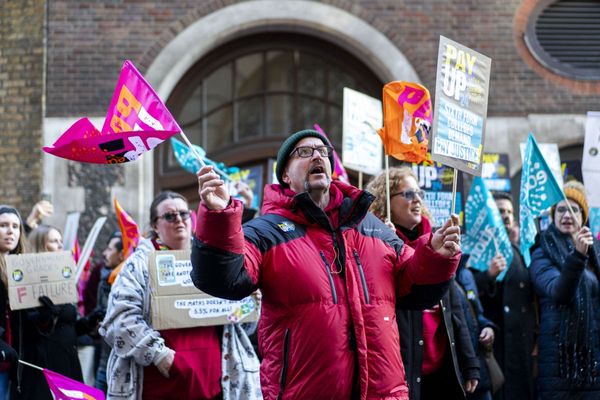
A group of foreign-policy heavyweights who served in the Trump administration, including President Donald Trump’s former ambassador to Moscow Jon Huntsman and Fiona Hill, the former European and Russia head at the National Security Council, wrote an open letter last month warning that U.S.-Russia relations are “at a dangerous dead end” and urging a “serious and sustained strategic dialogue” with Russia that balances “deterrence and détente.” Former senior officials from both Republican and Democratic administrations, including former Secretary of State George Shultz, former Defense Secretary William Perry, and former Democratic Sen. Sam Nunn were among the 103 experts who signed the letter, published in Politico.
“This open letter is wrong. It should be rejected, and I’m embarrassed that, frankly, these 103 people even signed on to it,” said James Gilmore, Trump’s ambassador to the Vienna-based Organization for Security and Cooperation in Europe, in an interview with Foreign Policy. He referred to the signatories as “people who are very smart people, that many of whom I know personally.”
“When I read it, particularly when I saw the signatures by very legitimate people, I was simply infuriated, because this letter is the Russian message. This letter is the Russian message here in Vienna, and it’s wrong,” he added.
The sharp backlash to the letter reflects a fierce and ongoing debate in Washington over how to manage relations with Russia. A decade after then-Secretary of State Hillary Clinton sought to hit the “reset” button on U.S.-Russian relations, Washington is still trying to figure out how to deal with a country that went from Cold War foe to potential partner to a revisionist and revanchist power.
Russia already held a central place in Washington’s foreign-policy calculus, but it has come to dominate Western foreign-policy debates since its invasion of eastern Ukraine and illegal annexation of Crimea in 2014. Since Trump’s 2016 election, which was marked by extensive Russian interference, Moscow has loomed large over domestic politics, too. A nearly 1,000-page report published by the Senate Intelligence Committee last month detailed extensive links between members of the Trump campaign and advisors with individuals with close ties to the Kremlin. The report from the Republican-led committee did not conclude that Trump allies had knowingly sought to collude with Russian operatives.
Now, Western leaders are closely eyeing how Russia will respond to a wave of pro-democracy protests in Belarus, an Eastern European country long aligned with Moscow that has been called “Europe’s last dictatorship.” Gilmore said he remains “deeply concerned” about the prospect of Russian intervention in Belarus to back the country’s embattled authoritarian leader, Aleksandr Lukashenko, who is clinging to power after claiming victory last month in an election widely seen as a sham. Last week Russian President Vladimir Putin announced that he had created a reserve police force that was ready to intervene in Belarus at Lukashenko’s request.
“What we have [to do] right now is to try to persuade Lukashenko that he cannot be the president of a country under these circumstances. He thinks that a fraudulent election followed by brutal suppression of the people is good enough,” Gilmore said.
Despite Trump’s repeated warm personal overtures to Putin, Congress and his administration have taken a hard-line stance toward the country’s former Cold War rival, including calling out Russian overtures on Belarus. Under Trump, the United States has tightened economic sanctions on Moscow, withdrawn from a key arms control treaty and the Open Skies Treaty, pushed to scupper a major Russian natural gas pipeline project to Germany, confronted Russian troops and mercenaries in Syria, and expelled dozens of Russian diplomats from the country.
The experts who wrote the open letter, including some who helped implement such policies in the Trump administration, warned that the United States was backing itself into a corner and risked stoking a conflict with Russia. “We are drifting toward a fraught nuclear arms race, with our foreign-policy arsenal reduced mainly to reactions, sanctions, public shaming and congressional resolutions,” they wrote.
They urged the two countries to restore normal diplomatic contacts and extend New START, a major nuclear arms treaty that is set to expire in February 2021 unless both sides agree to extend it. “We would be unwise to think that we have no choice but to stick with current policy. We must deal with Russia as it is, not as we wish it to be, fully utilizing our strengths but open to diplomacy,” the signatories wrote.
The experts also called on the White House and Congress to “restore flexibility to our sanctions regime, focusing on targeted sanctions that can be eased quickly in exchange for Russian steps that advance negotiations toward acceptable resolutions of outstanding conflicts.”
“You can’t have flexibility in the sanctions regime as long as the Russians continue their wrongdoing,” Gilmore said in response. “We have a right to hold Russia up to the proper standards of conduct of international relations and foreign policy.”
“It is a letter that basically mouths … the Russian message that we see here in Vienna, which is: Never mind our attempt to conquer Crimea. Never mind our misuse of diplomatic situations in various countries, never mind our violation of the Open Skies Agreement or the [Intermediate-Range Nuclear Forces] Treaty, never mind any of these kinds of things. We now need to engage in dialogue,” Gilmore said.
The chorus of hawkish criticisms on Russia have sharpened in the wake of the poisoning of Alexei Navalny, a prominent Russian opposition leader and Putin critic. Gilmore issued a statement condemning the poisoning as “completely reprehensible” and “an act of domestic terrorism,” and called for a thorough investigation.
The Politico letter prompted a sharp response from other Russia experts, including several former U.S. ambassadors and intelligence officers, who argued that now is not the time for another reset.
“Rather, the actions and behavior of Vladimir Putin’s regime pose a threat to American interests and values, requiring strong pushback,” the respondents wrote. The authors of the rebuttal argued that when it comes to Russia, there has been “merely confusion, not a coherent strategy” during Trump’s tenure. While in many ways the administration has taken a tough stance on Russia, for instance by providing lethal weapons to Ukraine and strengthening the U.S. military presence in Eastern Europe, that has been undermined by Trump’s refusal to challenge Putin over election interference or Russian bounties on U.S. troops in Afghanistan, they argued.
Writing in Foreign Policy, former Special Representative for Ukraine Kurt Volker noted that arguments to reinvigorate relations with Moscow have resurfaced across successive administrations. President George W. Bush famously said he got a “sense of his soul” after meeting Putin in 2001. Clinton literally pressed a reset button with her Russian counterpart in March 2009, months after Russia invaded U.S. ally Georgia.
In a harbinger of things to come, the word “reset” on the button was mistranslated into Russian. Instead, it read “overload.”







